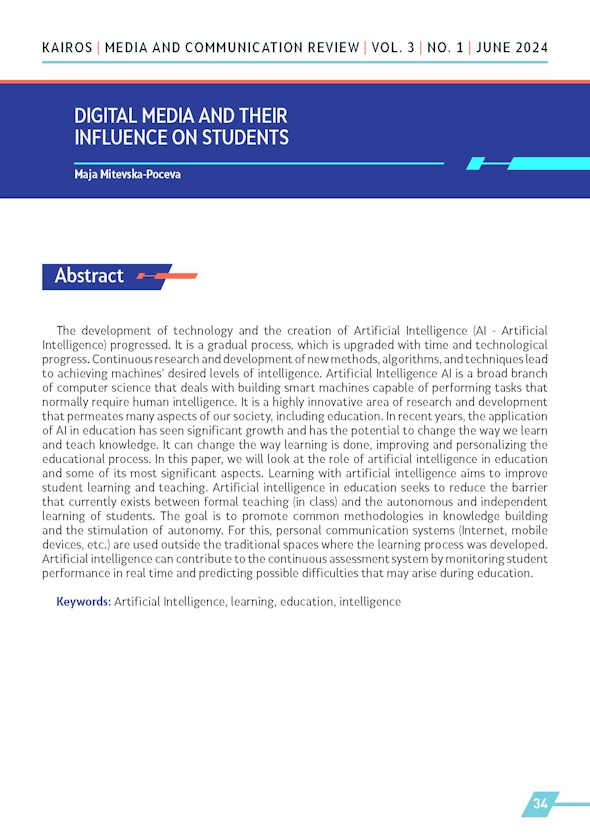
Digital Media and Their Influence on Students
Volume 3 | No 1 | June 2024
Maja-Mitevska Poceva
UDC: 316.774-028.27:37.011.3-052(497.7)
Abstract
The development of technology and the creation of Artificial Intelligence (AI - Artificial Intelligence) progressed. It is a gradual process, which is upgraded with time and technological progress. Continuous research and development of new methods, algorithms, and techniques lead to achieving machines’ desired levels of intelligence. Artificial Intelligence AI is a broad branch of computer science that deals with building smart machines capable of performing tasks that normally require human intelligence. It is a highly innovative area of research and development that permeates many aspects of our society, including education. In recent years, the application of AI in education has seen significant growth and has the potential to change the way we learn and teach knowledge. It can change the way learning is done, improving and personalizing the educational process. In this paper, we will look at the role of artificial intelligence in education and some of its most significant aspects. Learning with artificial intelligence aims to improve student learning and teaching. Artificial intelligence in education seeks to reduce the barrier that currently exists between formal teaching (in class) and the autonomous and independent learning of students. The goal is to promote common methodologies in knowledge building and the stimulation of autonomy. For this, personal communication systems (Internet, mobile devices, etc.) are used outside the traditional spaces where the learning process was developed. Artificial intelligence can contribute to the continuous assessment system by monitoring student performance in real time and predicting possible difficulties that may arise during education.
Keywords: Artificial Intelligence, learning, education, intelligence

